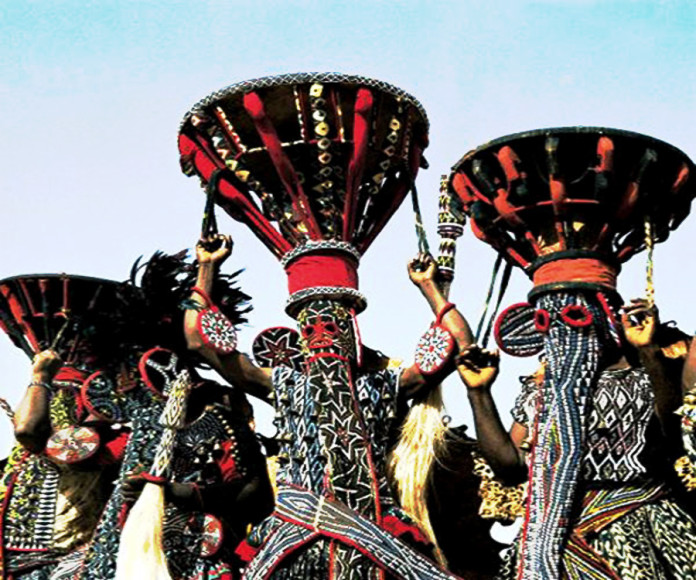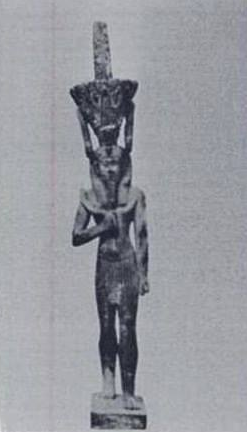
The idea of Africa as a civilizational realm, unique and distinct from other civilizations with its sovereign worldview and its own mode of thought, is not yet a conscious reality in the minds of the majority of our African elite. Most Africans think of Africa in terms of the political entity called the African Union (AU), but not in terms of a civilizational realm charting its own path and operationalizing its own mode of thought.
The reason for this lack of consciousness is the neurosis of a sizable number of our educated peoples, especially those in the elite echelon of society. They tend to believe and behave as if the only civilization left in the world is western civilization–a world they worship and of which they seek to become a part. These people are aware of western civilization since western owned and controlled media dominates (although rapidly declining) the global information space.
But this narrow mindedness in civilizational thought must be expunged from the fabric of African mentality and outlook.
A civilization is a concept that many people hear bandied around all the time. The vexing question arises, what is civilization and how can we clearly define African civilization in the 21st century?
A civilization is a group of cultures and languages that shares a particular world view. This group of cultures and languages has its unique way of viewing our interactions with nature and our place and mission in the universe. That is to say a civilization possesses a particular philosophical outlook and a unique mode of thought.

To fully comprehend the meaning of African civilization and define the boundaries of its reach, we need to correctly link it to our ancient past. Cheikh Anta Diop naturally underscored this important foundation in his philosophical musings. Obviously the history of Black Africa will only remain suspended in air, shrouded in mystery and improperly written, until the African elite can accurately connect it with the history of Kemet.
The Kemeto-Nubian Civilization is the oldest historically attested civilization known to man. Represented by the Kemetian and Nubian languages, these two cultures originated in the heart of Africa. In one form or the other, they existed for more than 4500 years until the collapse of the last Nubian kingdom around 1504. All the other sophisticated cultures that arose later in many parts of Africa–like the high cultures of ancient Ghana, Mali, Songhai, Great Zimbabwe and the Swahili East African coast–maintain the kernel of the classical civilization of Nubia-Kemet.
With this rich historical background it is only expedient to re-imagine a renaissance of African civilization. A re-emerging African civilization spans the greater parts of the African continent populated by Black Africans and includes the Caribbean islands where the majority of the population is of African origin. This also includes the Islands of Papua New Guinea whose residents identify themselves – through culture and language – with a re-emerging African civilization.
African civilization has many cultures with distinctly African languages as varied as Twi, Hausa, Swahili, Wolof, Ewe, Ga, Songhai, Yoruba, Zulu, Amharic, Oromo and others. This group of cultures and languages has a unique way of looking at the world and our place in it. That is to say that our worldview is unique.
The central idea of Ma’at in one form or the other is a core part of our cultural matrix. Of course, the African civilizational realm has absorbed ideas and influences from other cultures and civilizations, but the kernel remains authentically African; the core maintains the classical foundations of the Kemeto-Nubian Civilization.
There are also, other civilizations like the Eurasian Russian civilization, which is a mixture of Slavic, Byzantine, and Mongol-Turkic cultures with languages like Russian, Ukrainian, Tartar, Kazakh and co. The Confucian civilization comprises China, Japan, Korea, Singapore and Taiwan. The Hindu-Dravidian Indian civilization, the Muslim Arab civilization and other civilizations are other examples. The Russians, for instance, know they belong to a different civilization that is not western; the Chinese know they belong to a different civilization that is not western, the Indians and Arabs also understand that the hold a unique civilization.
However, many educated Africans still do not know about an authentic African civilization that is unique in its outlook. Hopefully, our educational systems can begin to acquaint themselves with the ethos of African civilization. Our higher institutions must present students with the information they need to identify that the western mode of thought is not the only way to intellectual and technological achievement or material comfort.
A dawning consciousness among grounded Africans that they belong to a re-emerging African civilization is the first step in the process of self-discovery, a realignment of thought patterns, a realization that there is a mode of thought unique to African civilization. This mode of thought can propel the re-emerging African civilization to the same stupendous achievements of the classical civilization of Nubia-Kemet or even greater heights. This mode of thought can come up with different models of science and technology, different interpretations of the laws that govern our universe, different systems of moral thought and development.
It is the choice of our generation to rediscover that mode of thought and educate our people in that mode, for them to become aware and know that they belong to a civilization that is not western. Armed with this mental framework, we would have gained the tools to fashion our own place under the sun. This is the central challenge of our generation.










Jehuti Nefekare has done a formidable job once again to reiterate the meaning of African Civilization and underscore the Nubian-Kemet foundations as the bedrock of a truly authentic African Civilization. It is the fitting challenge of our 21st century existence – what we, Africans, think of ourselves and what our world-view should collectively entail!
It’s long overdue to speak of an African Civilization. Thanks for sharing once again. Jehuti Nefekare has prescribed the importance of holding on to our Nubian-Kemet Civilization foundation. This is quite important especially in our struggle to self-determination.
Cheikh Anta Diop has laid an important foundation. He has bridged an important divide – betweem todays Africa and ancient Kemet and Nubia. This is important in understanding what it means to be African today. Our culture and our way of life is unique. We are a different people, civilizationally, although the rest of the world has borrowed from us aplenty still doesn’t mean we can copy what they do with what the took out of Africa.
I am tempted to say that the teaching of African Civilization should be thought and should be made compulsory reading. I remember growing up reading World Civilizations. We must scrap that. We need to institute the teaching and examination on African Civilizations. This will promote the understanding we need to appreciate who we are as Africans.
Very true. The curriculum is important in shaping the minds of the next generations. They need to know about Africa first, second, and last. The world didnt start after some middle ages. It started thousands of tears ago with African kingdoms. That history should be taught to all.
Thanks for sharing this informative piece of information. I think the African elite have been disappointing. They have sold our birthright in the psychotic appreciation of European culture over African culture. This must stop or we have to remove them from the space of African intellectual expression. I for one will clean house at most African universities. The professors must be hired based entirely on their understanding of African civilizational thought and expression. This should be an underlying criteria for all higher ed hirings in all African universities.
Through Sankofa, learning from the past can help us shape our future. It is definitely important to understand what our ancient civilizations did right so that we can build from that and also incorporate our modern experiences.
All these literatures at the library of Grandmother Africa could support it to set up Grand Mother Africa University of it kind teaching the theory of African civilization. We need legitimate registration from no body.
Could start as a foundation sponsoring first two pioneer student in batch for free, and award them certificate then soon it will be a full fledged University; which Africa will recognise it research and teaching practice soon. It just a matter of time, commitment and perseverance
It the people who has the power not the Central government. Which my marketing lesson will always be the focusing of our time to build strategy to buy the masses and the central government/ the leaders has no option to follow soon.
The course out-line bring all this writers to become faculty member or visiting scholars.